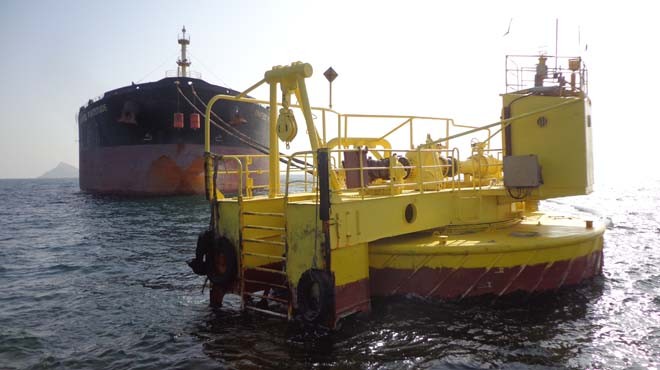
Oil sector players find novel ways to circumvent risks involved while operating in Balochistan

Balochistan is blessed with immense natural resources and its strategic location makes it highly lucrative for investment and industrial activity, especially in the oil and gas sector. The long coastline and its proximity to deep seas give this part of the country an edge over other coastal areas where the sea-bed is not as deep. There is no second thought that the only thing that is keeping new investors away from Balochistan at the moment is the law and order situation prevailing there.
At the existing seaports such as Port Qasim, ships have to be anchored at a distance and allowed to come up to the terminal for offloading once their turn arrives. These ships may have to wait for their turn for days if there are too many vessels there at one time. This ultimately leads to additional charges and demurrages as well as wastage of time and extraordinary hassles for all those involved in the activity.
The situation is even worse for oil refineries in Balochistan as they have to depend on supplies of crude oil via hundreds of oil tankers. These oil tankers are first filled at the ports and then have to make a long journey via a narrow and uneven road to locations such as Hub. Once the processing of crude oil is complete, the refined petroleum products are also transported back to Karachi by the same oil tankers so that these can be supplied to different parts of the country. Any instability in the region can halt the supply of crude oil or even result in looting of refined products such as oil and diesel by unruly elements in the area.
Though one may not be able to realise the situation while sitting in settled areas, these concerns are genuine for the locals and haunt the investors and workers employed at these industrial units. As a case in point, the high profile industry set up in Hub, Balochistan can be discussed here. It involves investments worth billions and there are new investments on the way as well. The Hub Power Company (Hubco), Byco Oil Refining Complex and the Gadani Shipyard- the hub of ship-breaking industry in the country- are already there. Fresh investments are also arriving for the setting up of Gadani Coal Power Plant and specially designed coal jetties for off-loading imported coal for this purpose.
In this context, one single major development which can change the dynamics of the industrial activity of the oil sector in the region is the setting up of a Single Mooring Point (SPM) by Byco Terminals Pakistan Limited. This facility has been set up in the deep sea, at a distance of approximately of 15 kilometers from the Byco Oil Refinery site located at Mouza Kund, Hub. SPM can be described as a floating jetty which is designed in a way that it can be connected to a crude oil carrying ship parked deep inside the sea. There is no need to wait for any turn and the shifting of oil to the refinery can be initiated with the help of a pipeline the moment a ship arrives.
Around 3.5 kilometers long part of the pipeline connected to this SPM is on the shore whereas around 11.5 kilometers part is inside the sea. The pipeline is around two and a half feet in diameter and has been laid by a Chinese company at an estimated cost of around $30 million.
An SPM facility has been set up for the first time in Pakistan and it will revolutionise the handling of petroleum and oil products in the country, says Derek Alan Lawler, Chief Executive Officer (CEO) of Byco Oil Pakistan Limited while talking to TNS. He says the facility is being set up to allow the handling of imported crude oil and other petroleum products in the open sea without going through the hassles involved at seaports and onward transportation of crude oil from there to the refinery via oil tankers.
He adds that the same pipeline can also be used to pump back the refined petroleum products such as gasoline, diesel etc into a ship standing in the deep sea for onward shipping to Port Qasim. So, he says, there would be no dependence on oil trackers and the risk of damage, suspension of supply and pilferage will not be there. On reaching depots in Karachi via ship the refined products, he says, can be filled directly into oil tankers there and sent to different parts of the country. The concept which was perceived as too ambitious by many in the start has translated into reality and the benefits it entails are worth the investment gone into it, he add
Though the facility has been set up for the Byco oil refining complex’s own use it can be utilised by others as well if it agrees to rent it out when it is not in use. The facility can serve as the third seaport in the country especially when crude oil exports have resumed in the country after a decade, says an official of an oil exploration company.